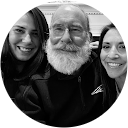
The option to work from home, once a rarity, has become widely adopted in the aftermath of the COVID-19 pandemic. The arrangement often provides greater flexibility and convenience for workers, and many businesses accommodate their employees by allowing them to work remotely for at least part of the week.
The increased availability of remote work has also impacted personal injury claims. Remote work arrangements can lead to defense arguments for a reduction in settlements or verdicts on the basis that injured people can reduce their lost wage claim, a compensable damage, if they can work from home.
Even with the option to work from home, you’ll still want to recover an amount that adequately compensates you for your injuries. A skilled attorney will be able to craft a strong case on your behalf.
How lost wages and diminished earning capacity are calculated
When you are injured in an accident, you may be out of work for some time while recovering. Recovery in personal injury cases account for this by compensating someone for lost wages or the money you would have earned had you not been injured.
Lost wages are calculated based on your hourly wage (or annual salary) and the number of days of work you missed. This calculation can also take other factors into account, such as lost overtime, commissions, tips, bonuses, and retirement fund contributions; missed promotions; sick days or paid time off used during your recovery; and even certain work-related perks such as stipends. There are also challenges AND benefits to being self-employed and sustaining an injury through no fault of your own. As with any claim for lost wages, documentation is key.
Lost wages differ from diminished earning capacity, which awards damages based on the claim that your injury has limited your future ability to earn money. For example, accidents that result in the loss of a limb or a traumatic brain injury may make it impossible to return to the job you held before you were injured.
To calculate lost wages or diminished earning capacity, attorneys will collect information on your earnings, such as your W-2 form and pay stubs. Your employer can also provide testimony on your earnings and missed work, including details on any perks or additional income you lost after your injury. A self-employed person can often testify for themselves about earnings lost due to injury, without the need to bring in economists and vocational rehabilitation experts.
In addition, a seasoned personal injury trial attorney will collect medical evidence showing that your condition prevented you or currently prevents you from working. This evidence can include a note from your doctor explaining how much time is necessary for your treatment and recovery.
Diminished earning capacity can be determined with the help of forensic economists. These experts consider factors like age, education, work experience, and skills to determine how the injury has inhibited someone from advancing one’s career and how many more years they would have worked. They then determine a sum an injured person would have likely earned during a career had they not been injured.
Your duty to find work
An injured person does have the duty to mitigate his/her damages in a personal injury case, and this may come up in claims involving lost wages or diminished earning capacity. Plaintiffs must take reasonable steps to minimize the impact an injury has on their lives, and their ability to resume their regular activities, including work.
If a plaintiff is able to return to work after their injury, and fails to do so, a defendant may argue that a plaintiff acted unreasonably if they took actions such as failing to show up for a job interview, applying for unsuitable jobs, or refusing offers of employment at a salary less than what they were making before their injury.
A seasoned personal injury trial attorney will counsel someone injured on what should be done, depending on the circumstances, to make and prove a lost wage or diminished earning capacity claim.
The impact of remote work
When you’re injured in an accident but still have the ability to work remotely, you may be able to return to your previous role and minimize the time when out of work. An employer may also be able to adjust your work duties so you can work remotely, or you may be able to find other opportunities in your field that allow for remote work.
The possibility of remote work can lead a defendant to argue for a reduction in lost wages and to make the claim that you have not suffered diminished earning capacity. They may also argue that you failed to mitigate damages by not pursuing remote work or that your skills or abilities give you the opportunity to find remote work.
However, this type of debate was also common before the rise of remote work. Plaintiffs are often able to return to work in some capacity, but not at the level they were at before their injury. There are several circumstances where you can still argue that you have suffered lost wages and diminished earning capacity, even with remote work as an option. These include:
- Your earnings are reduced as a result of your work duties being adjusted to support remote work
- Your injuries prevent you from returning to full-time employment and only allow you to work remotely part-time
- Psychological or emotional trauma caused by your injury is inhibiting your ability to work
- Remote work is allowing you to earn income but limiting your potential for future career advancement
Getting injured while working remotely
Remote work has also raised questions about whether employees are eligible for workers’ compensation if they are injured while working from home.
Since workers’ compensation is no-fault insurance and an employer has no control over an employee’s home environment, it can be awarded for numerous different types of injuries that occur during the course of a workday. These can include injuries like carpal tunnel from frequent computer use or breaking an ankle while tripping over a loose rug.
It is generally accepted that employees can receive workers’ compensation for injuries that occur outside the workplace. However, they must demonstrate that they were doing a work- related activity. Even something like tripping and falling while walking from your home office to the kitchen to get a cup of coffee can be eligible for workers’ compensation; by contrast, your claim won’t be successful if you hurt yourself while mowing the lawn on your lunch break.
Workers’ compensation claims for injuries that occur while working from home can sometimes be more challenging than those that occur in the workplace. For example, an injury that occurs at home is less likely to be corroborated by witnesses. Insurers may also be suspicious of injuries that occur outside the typical 9-5 workday, even though employees may opt to put in evening hours when working remotely.
Let’s review your case
The attorneys at Anderson Trial Lawyers are here to assist you with your claim, including issues involving personal injuries and working remotely. Call 860.886.8845 or contact us online to set up a free consultation.







